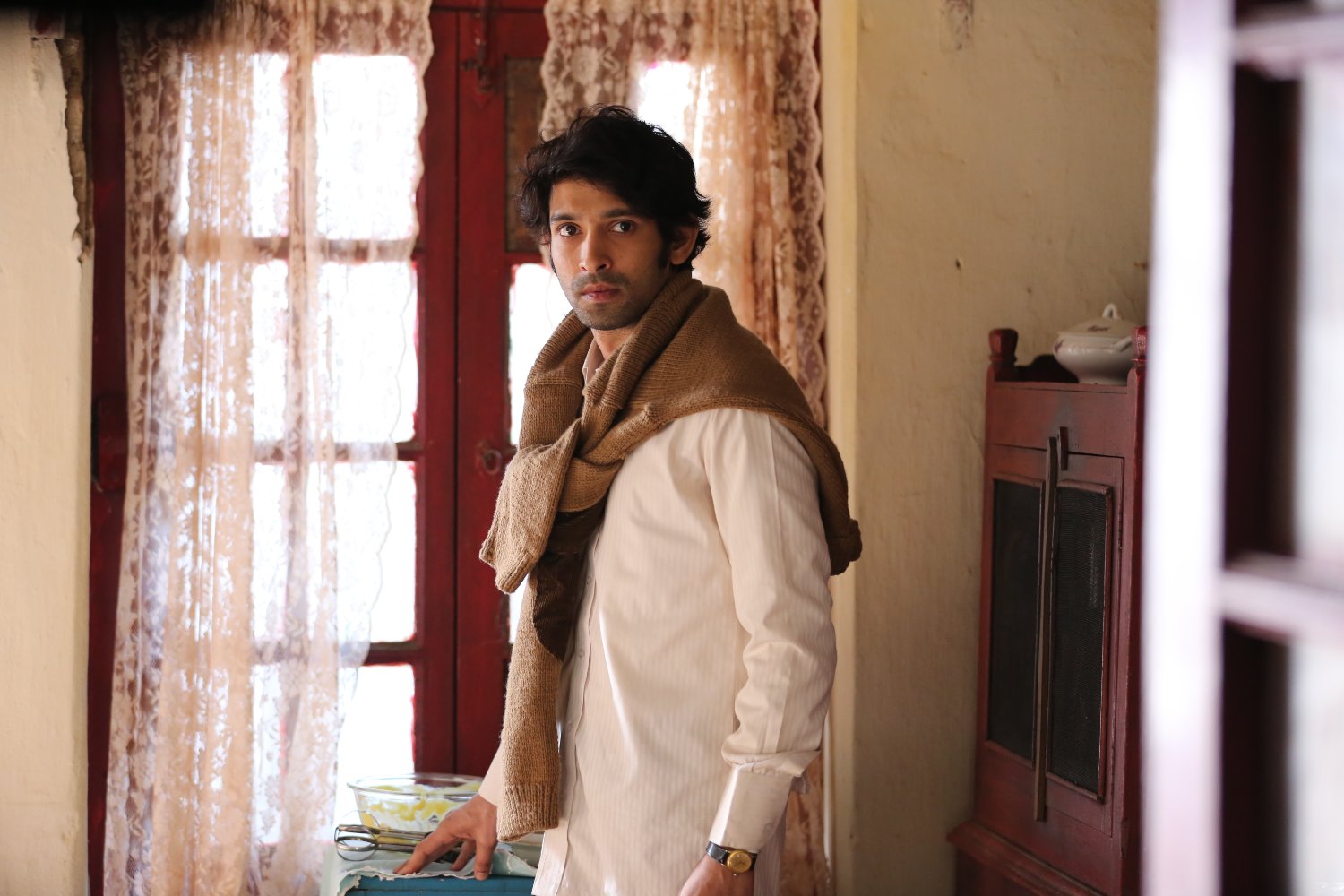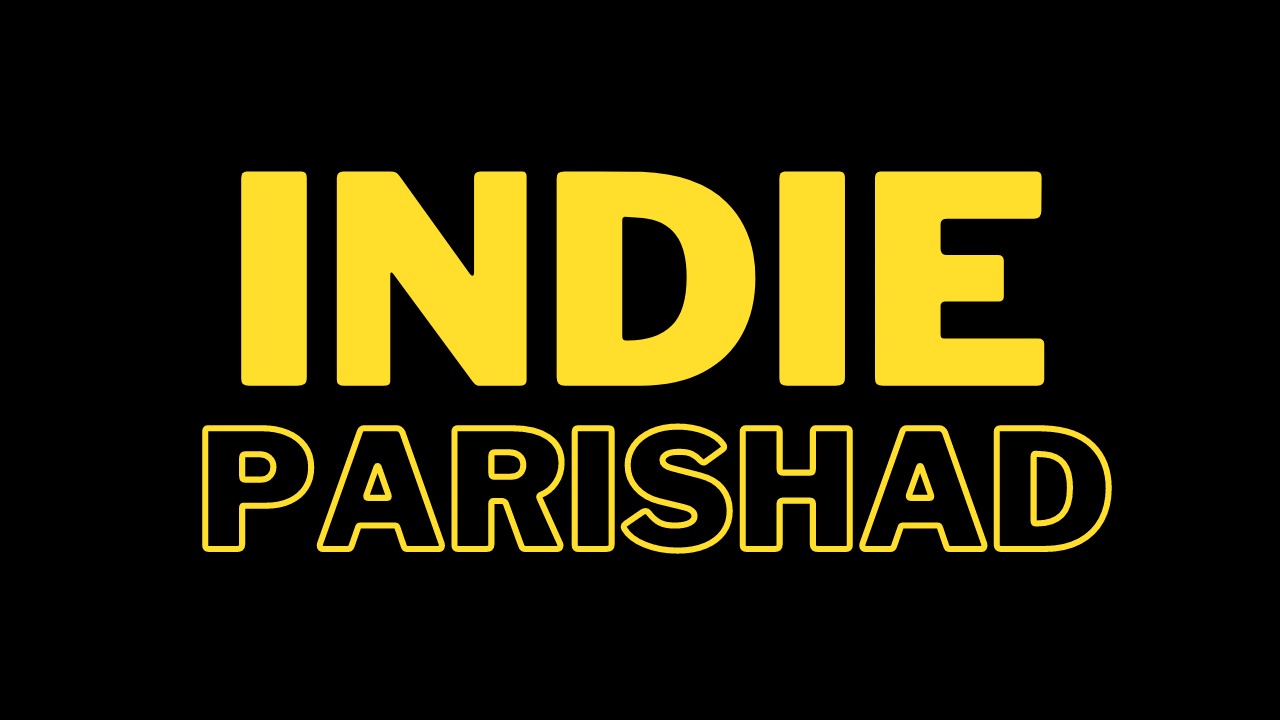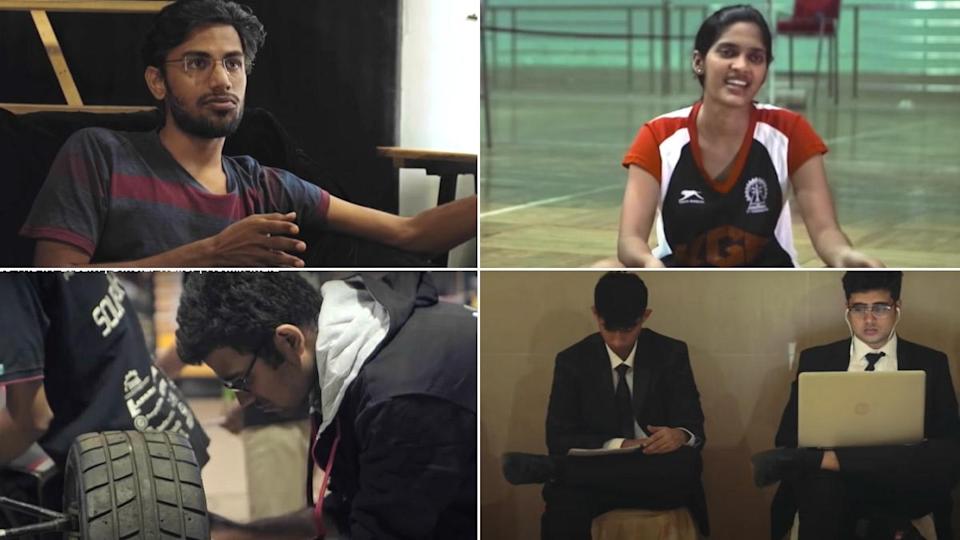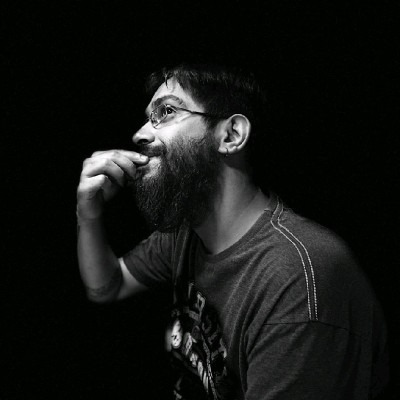By Priya Bhattacharji
In a perplexing age of distraction and delusion, being ‘in the moment’ is hard. To find your place amidst a surge of emerging opportunities and hierarchies is daunting. Perhaps, to thrive in peace lies in the attunement to the present.
Vikrant Massey’s free-spiritedly etched career is a fine example of engaging with the present. If he ever considers writing a self-help book for actors, its precept is likely to be: ‘Be mindful of the now to cultivate an active cognisance that recognises for self-enhancing opportunities’. Gliding from prime-time TV serials and ads to this year’s indie rage, the Konkana Sen Sharma directorial debut, A Death of the Gunj, the very in-tune Vikrant has a lot to share about transitions and the spirit of ‘now’.
With a calm exuberance, he chats at length about his emotionally-fraught character ‘Shuttu’ from the Gunj, his career oscillations, and the action-packed entertainment landscape among other things.
How is life going at the moment?
VM: To be honest, I am quite overwhelmed with the response A Death In The Gunj and my character Shutu got this year. It’s been four years since I entered films. Lootera was my first feature. I am taking everything as it comes. I want to be part of good narratives — be it on TV, film, web. Stories that are relevant, ones that make you think. I’m not someone who plans a lot, at least not consciously. I’m pretty content the way things are right now. I am experiencing life as it hits me.
What are you drawn towards?
I have always been an inquisitive person, aware of what happens in society. I’m glad and lucky to be raised that way. I’m drawn towards realism, to socially relevant stories. While you might say I was part of prime time Indian television, a serial like Balika Vadhu was about a social issue.
Cinema is a reflection of society and vice versa. Both have evolved with the other. I look for characters are relatable, scripts with relatability — one I know people will feed on, whether they sit in a theatre or in front of a laptop. I’ll be extremely honest: I don’t really choose roles. I have roles offered with claims that they’ve been created while keeping me in mind.
What about ‘Shutu’ in Gunj?
Konkana claims she created the character keeping me in mind and that, I must say, makes me very happy. In Shutu, I find a lot of both Konkana and me. She too is a realist, sensitive to issues around her. I was lucky to work with the likes of Abhishek Chaubhey and Honey Trehan. It was fantastic working with Konkona, as she understands a lot of the process. We wanted to create a character with emotional turbulence. I guess people have recognised the larger message. With the advent of consumerism and social media, there is an isolation that has pushed individuals into themselves. In our day-to-day life, we inadvertently do things to others without realizing what they transpire into. In a society with rigid gender definitions, Shutu was this gentle sensitive guy who didn’t fit into the set brackets we have for masculinity and femininity. Shutu was a misfit. Then, of course, his character also hinted at the effects of mental health.
Speaking of social media, you are fairly vocal about issues on Instagram?
Look, my profession doesn’t define me or define my social feed for that matter. I share what I experience, what I think and I’m very happy for that. Even if I was a banker, I’d have a similar feed.
Returning to Shutu, have you had similar experiences?
Well, I have had my share of experiences. They are nothing extraordinary. Being bullied and bullying is a part of the society we live in. There is always this one-upmanship attitude that makes you step on others. That’s how self-centered we are.
Have you always been inclined towards acting?
Acting was something I knew I had to do when I was in school, maybe in 7th or 8th grade. When I hit puberty, the influence of Bollywood and TV was strong.
I grew up in a nuclear family, in a 1-bhk in Mumbai. Due to the lack of privacy, the staple thing for all of us was TV. I used to watch everything and anything. When HBO and Star movies came to India, my brother and I used to sit down daily with the newspaper, open the TV listings to mark out what to watch. We ended up watching a lot of films. At school, I used to be a dancer, dancing on stage regularly for school functions. I was part of the Shiamak Davar troupe for 3 years. Acting truly happened at the age of 16. After nearly a decade, I made my way to films.
We haven’t really got to see you dance on screen.
Nahi, yaar…(smirks) mujhe waise roles hi nahi offer hote.
Any actors that influenced you while growing up?
I can’t say I really looked up or what influenced deeply by anyone. I was simply watching a lot of films. Once I began acting, I started appreciating the roles of Naseer Saab, Irrfan Khan, Aamir Khan, Amitabh Bachchan: people who were versatile and could play varied characters. Then it used to be ‘saal mein ek baar toh inki movie dekhni hai’, especially when it comes to Aamir Khan.
What about the switch from TV to film?
I started off with television at a very young age. It’s a different world altogether. Television is for bulk consumption; I’d prefer not to get into the nitty-gritty of the TV industry. I have had some personal differences. All I can say it is far more demanding. TV is like catering to a Langar; films are like fine-dining, for À la carte consumption.
So does that mean no more TV?
Nope, I never said that. In fact, I’m returning to television with a telefilm. It’s just that I find TV a longer commitment and I tend to lose attention in three months. TV is a big TRP game, the business is far more aggressive. See the unfortunate state of our news channels and you’ll know what I mean.
What do you have to say about the current state of cinema?
Well, I do believe the lines between commercial and indie cinema are blurring. There has been access to seamless, good content in the last 5 years. In terms of narratives, the film industry has proven that we are competing with international standards.
Consumption has become a lot more intimate. The same people who watch Golmaal in cinemas watch Game of Thrones at home. I think things will progress rapidly in the next 4-5 years. Digital is going to massive in terms of outreach. Who knows, by 2024, India might be absolutely digital.
Any views on independent cinema?
Independent is a terminology for shoe-string budget films, and that’s unfair. My understanding: Independent Cinema is making films free from all possible demands. Without compromise. Free of access, freedom for creativity, freedom from censorship. For me, independent cinema is that freedom to think ‘out-of-the-box’.
What does the near future hold for you?
Currently, I’m working in ‘Mirzapur’, a web series for Amazon Prime with Shweta Tripathi. I start the new year with a film project called Cargo produced by Vikramaditya Motwane and directed by Shlok Sharma. And then I collaborate with Ekta Kapoor once again for a web-series with Alt-Balaji.









Leave A Comment
You must be logged in to post a comment.